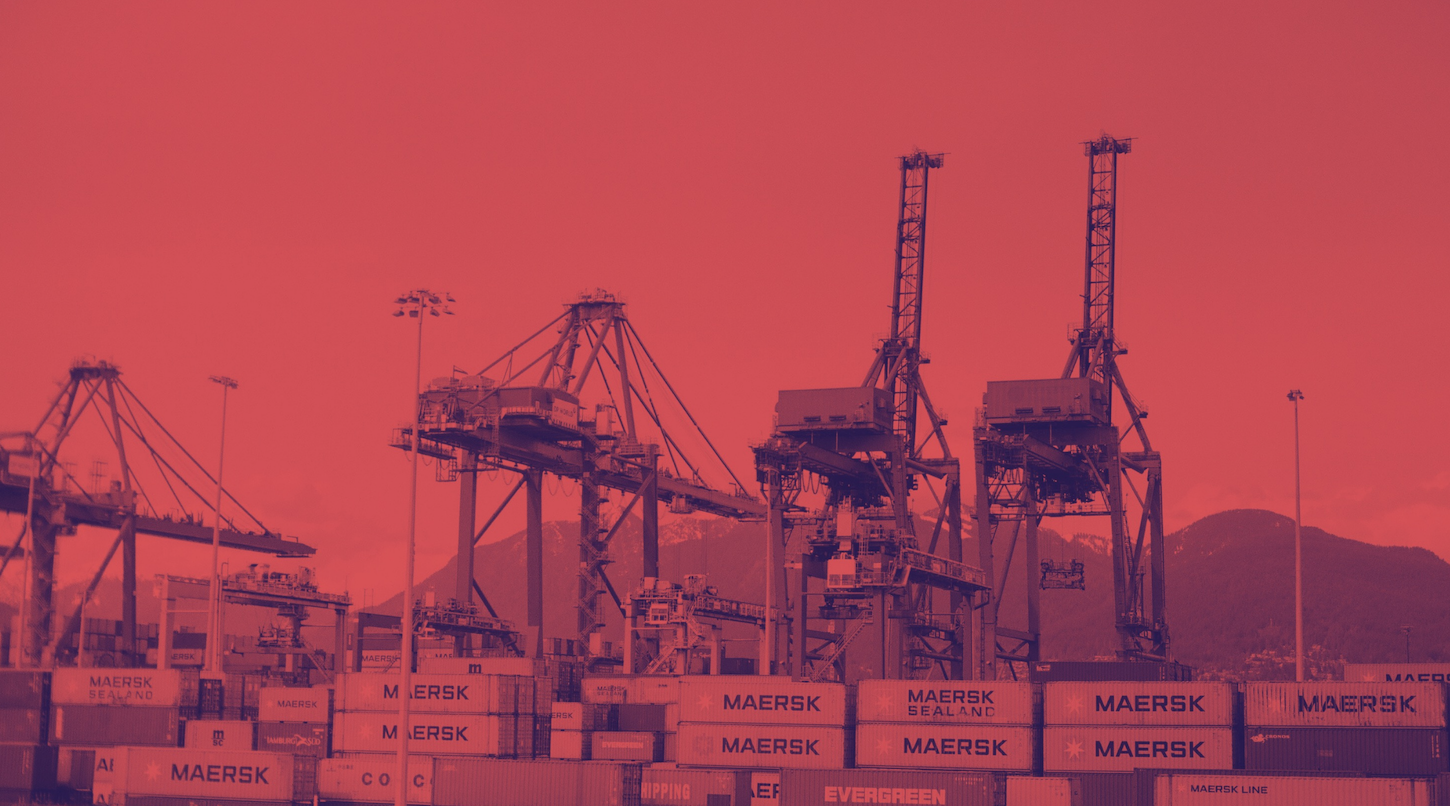
Emission trading and carbon border taxes in the European Green deal
The global fight against climate change might be able to move forward. With the EU Green deal and the election of Joe Biden, the world awaits some tough economic measures that could make saving the climate cheaper than destroying it.
This is the third column in a series of columns about the European Green deal. We might have arrived at one of the most contentious parts of Europe’s green deal: the carbon border tax meant to strengthen the emission trading system of the EU along with the risk it poses for a new global trade war. After reading this column, you will know what the ETS is, why it poses a risk for a trade war and how the EU hopes Joe Biden reacts to it.
The EU emissions trading systems (ETS) has led Europe’s carbon emissions reductions the last decades and negotiations to strengthen it are currently unfolding as part of the European green deal (European Commission, 2020). It can be compared to the high tax many countries levy on cigarettes: because smoking is unhealthy, the government makes it more expensive, hoping to encourage you to stop smoking. Similarly, the emission trading system puts a price tag on emitting CO2 to encourage industries to reduce their carbon emissions, which are unhealthy for the planet (read more in my first column).
The EU ETS is the cornerstone of the EU’s emission reduction policy, however it is not perfect. In this column, I would like to discuss one of the challenges for the EU ETS: the need for a carbon border tax1. A carbon border tax is a powerful instrument which could force industries not just on the European continent, but all over the world to reduce their carbon emissions. However, border taxes have a particularly nasty potential of igniting trade wars.
Carbon border tax
When was the last time you bought cigarettes or alcohol in the duty free zone at the airport because it was cheaper there? Companies do the same. Companies which produce goods for the European market increasingly put their factories outside the EU and ‘import’ their products into the EU. In this way, they can avoid paying for their factories’ emissions in the EU ETS. In effect, the CO2 emissions leak away to other continents. This is called ‘carbon leakage’. The solution to stop carbon leakage is to make sure these companies pay for their emissions after all. This can be done at the European border: any company that wishes to import a product to the EU must pay a carbon border tax over all emissions made during the production and transport of that product. This would be the equivalent of having to pay a fee to take your duty free cigarettes and alcohol with you when leaving the airport. The effects of an EU carbon border tax would be immense. The Boston Consulting group concluded in a recent report that it would ‘transform the competitive landscape of several industries’ (BCG global, 2020). In other words: it will become a lot less financially attractive for companies worldwide to emit CO2 .
Border taxes and trade wars
Border taxes are not without risk. They are a common theme in recent trade wars (in these trade wars, the border taxes are often called: “import tariffs”). A trade war generally proceeds as follows: country A puts a tax on goods imported from country B. Country B thinks this unfair and reacts with a tax on goods imported from country A. If countries keep putting higher taxes in place in reaction to each other, the trade war escalates. For example, over the course of 2018 and 2019, import tariffs between the US and China increased in several rounds. By the start of 2020, the US had import tariffs in place for more than $360bn worth of Chinese goods. In response, China had tariffs in place for more than $110bn of US goods. Over many of these goods, companies had to pay up to 25% tax when importing their products to the US or China (BBC News, 2020). The EU and the US also have mutual import tariffs in place. Recently, the US has made deals with China (Politico, 2020) and the EU (European Commission, 2020a) to reduce some import tariffs. So you can imagine: the EU must be very careful with the instalment of yet another border tax (on carbon).
The risks of sparking new trade wars is one of the big issues which EU policymakers are currently debating about with regards to the carbon border tax. However, despite these challenges, the European Commission is determined to make the border tax work (European Commission, 2020b).
The EU carbon border tax and Joe Biden
Would the US retaliate to a European carbon border tax with import tariffs for European goods? Trump might have retaliated, but Biden has strong plans for carbon emission reduction for the US (Appunn, 2020). This raises an interesting opportunity: creating a transatlantic ETS2. If the EU and US are covered by the same emissions trading system, carbon border taxes between them would no longer be needed and the risk of an EU-US trade war over carbon would disappear. Moreover, China is currently developing a national ETS too (Wiedenbach, 2020). If China, the US and the EU would decide to integrate their ETS’s into one global ETS, it might one day become attractive for all countries in the world to join.
Whether this is feasible remains a question. It might become a challenge for Biden to pass stringent climate legislation through the US Senate (Nijhuis, 2020) and the rollout of the ETS in China is proceeding slower than expected (Wiedenbach, 2020). Nevertheless, if a global ETS would one day arise, inspired by the EU ETS, this would truly be a global climate success story for the EU.
Footnotes:
- There are more challenges. Some include the low carbon price and the fact that many sectors, such as aviation, are not in the ETS yet. But these challenges are beyond the scope of this column.
- If you want to read more about a transatlantic ETS and carbon border tariffs for the US, check out these links:
https://www.cleanenergywire.org/news/german-politicians-express-relief-hope-climate-cooperation-after-biden-win
https://www.politico.com/news/2020/10/14/biden-trade-fight-global-warming-429495
https://www.cleanenergywire.org/news/eu-should-take-lead-climate-cooperation-us-political-analyst
References
Appunn, K. (2020). Europeans express relief, hope for climate cooperation after Biden win. Retrieved 15 November 2020, from https://www.cleanenergywire.org/news/german-politicians-express-relief-hope-climate-cooperation-after-biden-win
BBC News. (2020). A quick guide to the US-China trade war. Retrieved 15 November 2020, from https://www.bbc.com/news/business-45899310
BCG global. (2020). How an EU Carbon Border Tax Could Jolt World Trade. Retrieved 15 November 2020, from https://www.bcg.com/publications/2020/how-an-eu-carbon-border-tax-could-jolt-world-trade
European Commission. (2020). EU Emissions Trading System (EU ETS) – Climate Action – European Commission. Retrieved 15 November 2020, from https://ec.europa.eu/clima/policies/ets_en
European Commission. (2020a). Commission adopts proposal to make EU-U.S. agreement on tariffs effective. Press corner. Retrieved 15 November 2020, from https://ec.europa.eu/commission/presscorner/detail/en/ip_20_1572
European Commission. (2020b). European Green Deal: what role can taxation play? – Taxation and Customs Union – European Commission. Retrieved 15 November 2020, from https://ec.europa.eu/taxation_customs/commission-priorities-2019-24/european-green-deal-what-role-can-taxation-play_en
Nijhuis, C. (2020). EU should take lead in climate cooperation with the US – political analyst. Retrieved 19 November 2020, from https://www.cleanenergywire.org/news/eu-should-take-lead-climate-cooperation-us-political-analyst
Politico. (2020). Here’s what’s in the U.S.-China trade deal. Retrieved 15 November 2020, from https://www.politico.com/news/2020/01/15/what-is-in-us-china-trade-deal-099399
Wiedenbach, A. (2020). China Seeking to Set Carbon Price Through its Emissions Trading System (ETS) – Climate Scorecard. Retrieved 19 November 2020, from https://www.climatescorecard.org/2020/03/china-seeking-to-set-carbon-price-through-its-emissions-trading-system-ets/

 The ’Ndrangheta’s Infiltration and Threat to European Institutions
The ’Ndrangheta’s Infiltration and Threat to European Institutions  From Paper to Practice: How Grassroots Norms Undermine Gender Rights in Pakistan
From Paper to Practice: How Grassroots Norms Undermine Gender Rights in Pakistan  Exploited Childhoods: The Role of Global Corporations in Perpetuating and Mitigating Child Labour
Exploited Childhoods: The Role of Global Corporations in Perpetuating and Mitigating Child Labour  Human Rights Challenges in Addressing SLAPPs in Media, NGOs and Journalism in the EU
Human Rights Challenges in Addressing SLAPPs in Media, NGOs and Journalism in the EU 


